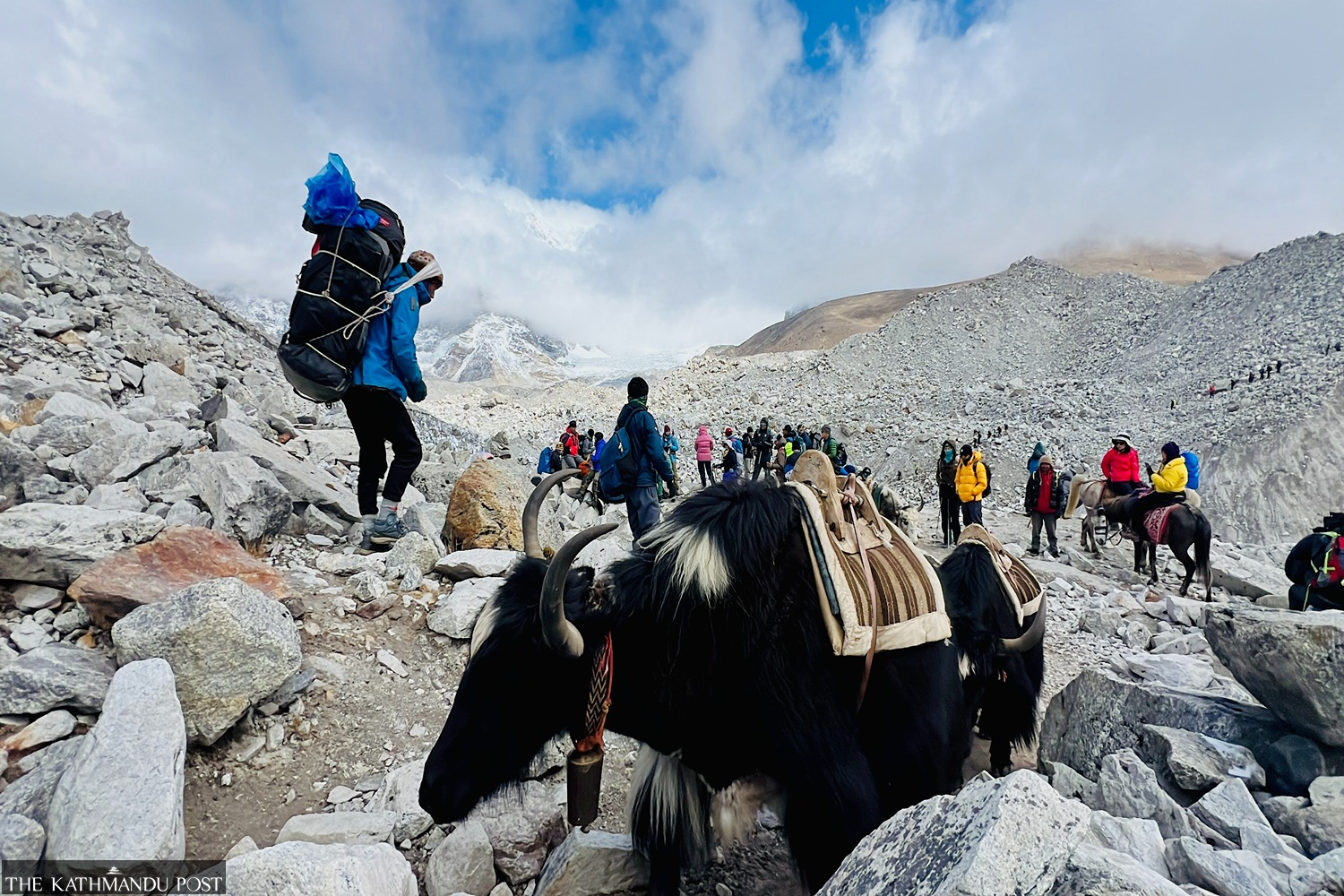The review contains spoilers.
A movie that depicts serious social concern should make one uncomfortable. The presentation of ill practices, prevalent even today in remote areas of the country, should be raw, unfiltered and disturbing. The newly released film ‘Boksi Ko Ghar’ certainly does not offer comfort viewing. It’s not the type of film you watch to relax or rejuvenate. The movie will unsettle and disturb you. It will make you angry and that is when you realise how well the movie has been made—how well it captures what needs to be captured.
The movie depicts the story of Junu—a little girl, played quite brilliantly by Shupala Sapkota—who likes to live her childhood to the fullest. She likes studying, dancing and Ravi—a friend who helps her with homework. But in an instant, she is robbed of that childhood. The next thing she knows, she is getting married to someone who could be her father’s age. Junu is confused as her world changes overnight. Everything she knows, her school, her home and Ravi are taken away.
Thus begins a series of traumatic incidents in her life. Her husband rapes her the very night of marriage and she is sent back home and is only to return after she has her first period. She stays at home, obviously shaken and confused, with blood dripping down her clothes. Her teacher visits inquiring about her education and seems distraught to see what has become of the bright student.
Things take a turn for the worse when Junu’s husband passes away while crossing a river and she has to take the blame. Grown-up Junu, played by Keki Adhikari, has taken quite an ambitious role in the movie and doesn’t let anyone doubt her.
People rationalise misfortunes by assigning blame. It makes them feel better. After labelling her ‘a woman who brings misfortunes’, Junu’s mother-in-law kicks her out of the house and she starts living in the cow shed. When the father-in-law is caught raping Junu, the mother-in-law beats her and yells, “You ate my son and now you are after my husband.” The sheer blindness of people who believe so heavily in myth and faith couldn’t have been portrayed better.
Seeing her husband raping his own daughter-in-law, the mother-in-law again plays the blame game to rationalise the situation. In an interview, actress Adhikari herself said that it is often marginalised women (who lack social and familial support and can’t voice these things out) that go through most social hatred and crime.
According to a research paper by the UN in January 2020, it is also common for women from Dalit communities, who are illiterate, have some kind of disabilities or are widowed, that fall victim to such crimes.
Junu having no support has to give in when she is forced to eat faeces as dhami/jhakri announces her place is far away from the society. In certain remote regions, the influence of dhamis/jhakris is so strong that family members often turn against their own if accused by them.
Discarded, assaulted and raped, Junu still carries her baby. Once radiant, dancing, and studying, she is now cold and alone, calling a tree her home. The trauma lingers, haunting her with visions of her former self. She keeps seeing visions of young Junu. She keeps trying to warn the young girl but it’s too late. The damage is already done. The label of ‘witch’ has already been stamped upon her.
A student played by Swechya Raut arrives in the village to write a story on witchcraft. The villagers keep an eye on her as she frequently meets Junu. Assuming Junu has also turned the student into a witch, they rally after her.
The villagers assemble and pick up stones to throw at Junu. She falls to her death, but witchcraft persists beyong her death. With Junu, the issue doesn't die. When she dies with the tormented child still inside her, the only thing that dies is her. A child, robbed of her childhood and beaten to death by society. The same society that built the system and bombarded women with tons of barriers that they deal with and go through life without really knowing their potential.
Once Junu falls to her death, the student is now under the tree with her head shaved as she yells “boksi” (witch). The ending scene symbolises the never-ending practices that are still prevalent today. It passes from one woman to another. From one society to another.
Boksi Ko Ghar
Director: Sulakshyan Bharati
Cast: Keki Adhikari, Shupala Sapkota, Swechya Raut
Language: Nepali
Year: 2024
Duration: 1 hour 50 minutes











 English (US) ·
English (US) ·